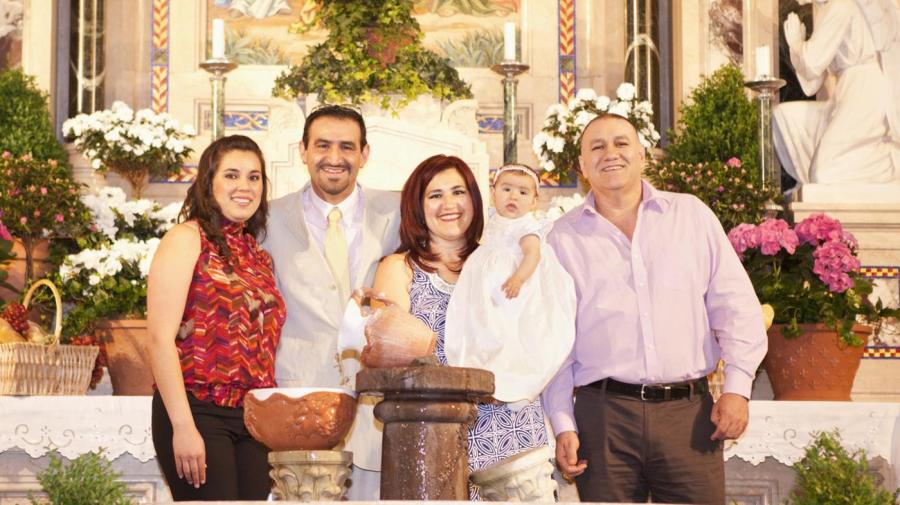What Is the Role of Padrinos in Hispanic Families?

A padrino is considered a person’s godfather, serving as a protector, mentor and confidant. Padrinos in the plural sense are godparents who have a special relationship with a child following the baptism ceremony.
The term “padrino” also means godfather, and it is associated with the Spanish word “compadre,” which has a less formal connotation in modern society. During baptism ceremonies, godparents and natural parents of the child form a special bond and become compadres. This cements an already existing friendship between godparents and the parents, and it is the closest bond next to familial relationships. It is considered a great honor to become a padrino or compadre throughout Mexico and many Latin American countries, and it is a lifelong commitment.
In a Mexican baptism, for instance, godparents make a sacred vow to the parents and child. Candles are lit in the ceremony, symbolizing the child’s coming to Christ. The parents and godparents must keep the flame burning, literally and figuratively. The involvement of godparents is common in many non-Hispanic baptisms as well, and godparents pledge that they intend to fulfill parenting roles if the natural parents are not able to care for the child. Padrinos also serve as official witnesses and lifelong mentors to newlyweds in Hispanic weddings. Padrinos within a wedding structure are usually elderly couples and friends of the family.





